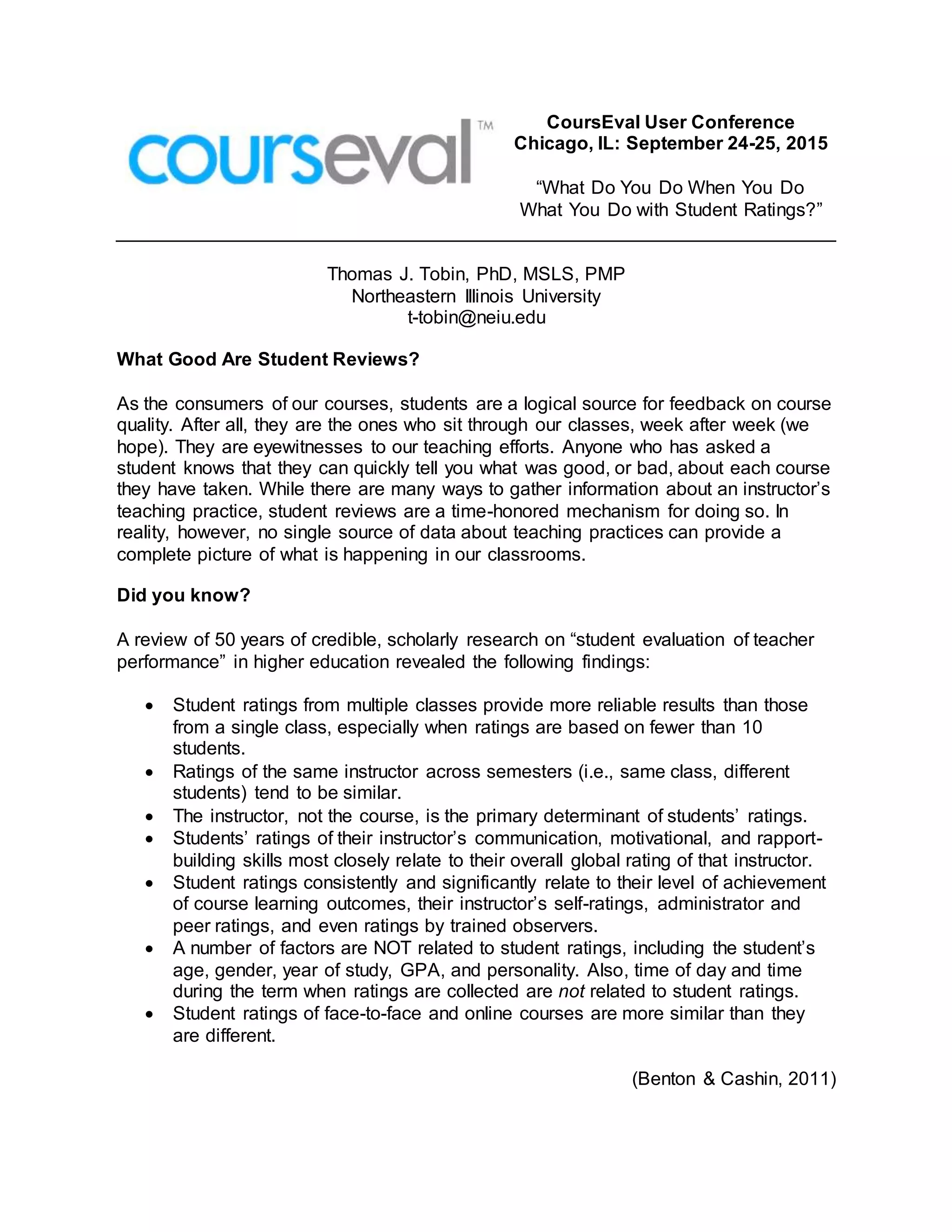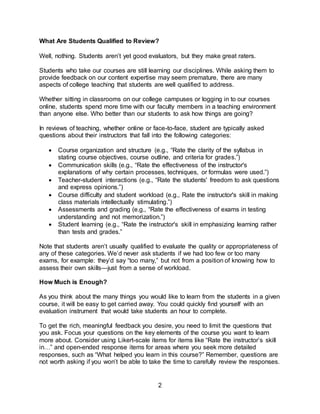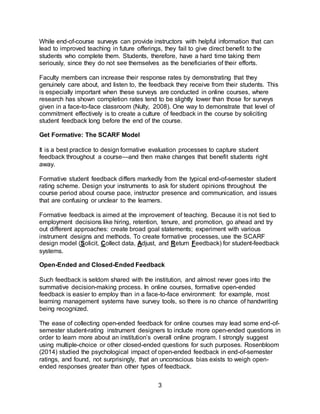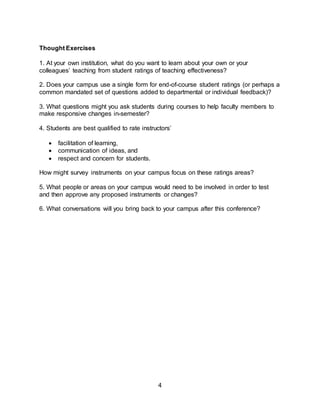This document summarizes a presentation on using student ratings to evaluate teaching effectiveness. It discusses that while students are not experts, they can provide valuable feedback on course organization, communication, interactions and workload. Research shows ratings are more reliable with multiple classes and relate to learning outcomes and peer/administrator ratings. Formative feedback throughout a course allows instructors to improve, while end-of-course surveys alone do not benefit students. The presenter advocates focusing ratings on facilitation of learning, communication and respect, and collecting formative feedback using closed-ended questions to avoid bias from open responses.



